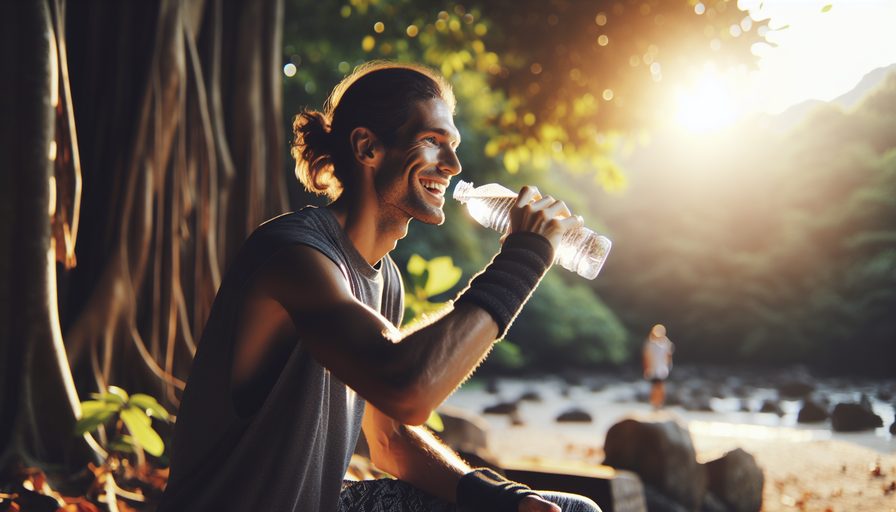Drink Up: The Essential Role of Hydration in Athletic Success
Published:

In the world of athletics, where every fraction of a second counts and the smallest edge can define a winner, hydration emerges as an unsung hero. Did you know that even a 2% drop in your body's hydration level can significantly impair athletic performance? This simple fact underscores the critical importance of proper hydration for athletes at all levels. As we dive deeper into the subject, let's explore why staying hydrated is integral to athletic success and how you can maintain optimal hydration.
The Science Behind Hydration
Hydration isn't just about quenching thirst; it's a vital component of cellular function, temperature regulation, and joint lubrication. When you're sweating it out on the field or at the gym, your body loses fluid rapidly. This can lead to a decrease in plasma volume, making it harder for your heart to pump blood, ultimately reducing your endurance and strength.
- Cellular Function: Water is essential for transporting nutrients to cells and removing waste products. For athletes, this means optimal muscle function and quicker recovery times.
- Temperature Regulation: During intense physical activity, your body generates heat. Water helps dissipate this heat through sweating, preventing overheating and allowing you to maintain performance levels.
- Joint Lubrication: Adequate hydration ensures that your joints remain well-lubricated, reducing the risk of injury and maintaining flexibility.
Practical Hydration Tips for Athletes
Incorporating effective hydration practices into your routine doesn't have to be complicated. Here are some actionable strategies:
- Start Early: Begin hydrating well before your workout or competition. Drinking water throughout the day ensures you're not starting at a deficit.
- Monitor Your Intake: Aim for a minimum of 17-20 ounces of water 2-3 hours before exercise. During exercise, consume about 7-10 ounces every 10-20 minutes.
- Tailor to Conditions: Adjust your fluid intake based on environmental factors like temperature and humidity. Hotter conditions may require increased fluid intake.
- Post-Exercise Replenishment: After exercising, rehydrate with 16-24 ounces of fluid for every pound of body weight lost during the activity.
The Role of Electrolytes
While water is essential, athletes also need to consider electrolyte balance. Sodium, potassium, and magnesium lost through sweat need replenishing to prevent cramps and maintain muscle function. Sports drinks or electrolyte tablets can be a practical addition, especially for endurance athletes.
Conclusion
Hydration is a cornerstone of athletic performance and overall health. It's not just about drinking water when you're thirsty; it's about forming a habit that aligns with your body's demands and supports your athletic goals. Embrace hydration not as a task but as an integral part of your training strategy. Optimize your performance by keeping track of your hydration levels. Using modern apps like Sulak can make this task easy and efficient. Download Sulak here to ensure you stay ahead of the game and never let dehydration slow you down.
Athletes who prioritize hydration will not only see improved performance but will also enjoy greater overall health and vitality. Here's to reaching new heights with every drop!